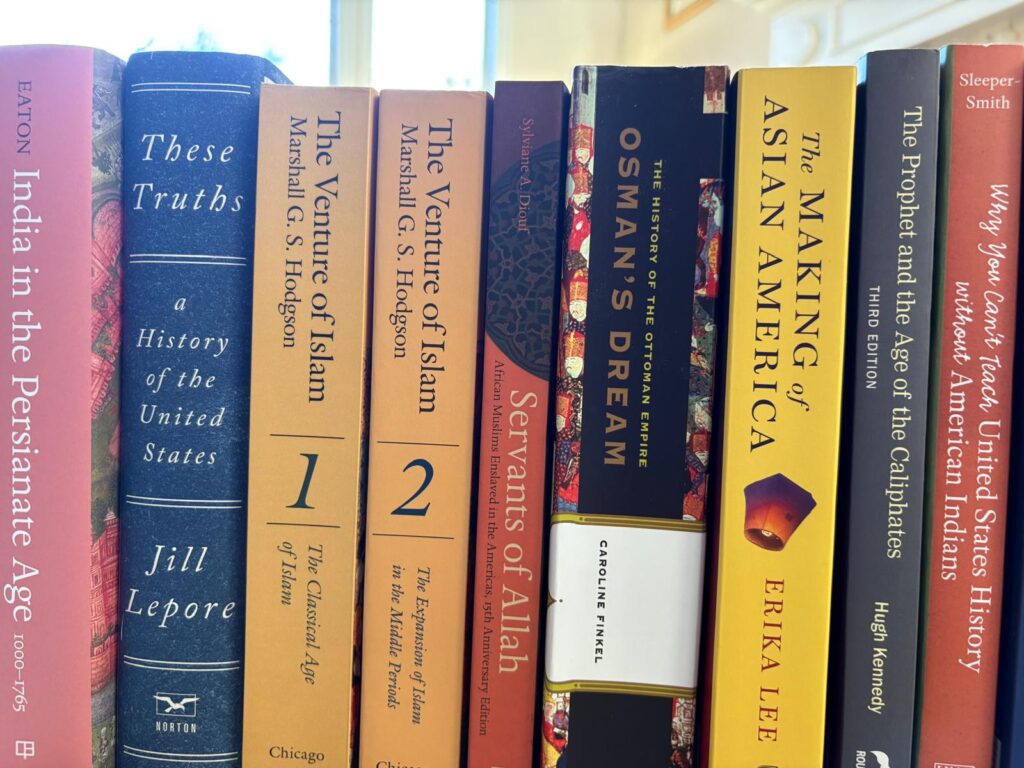As the Islamic studies curriculum designer at ARK Academy, I’m excited to launch a regular blog series describing the work we are doing on developing a brand new integrated curriculum for ARK Academy. My hope is that, God willing, this series will shed some light on not only the curriculum itself, but also our thought process and approach in developing it. This first post will provide a high-level overview of the content of our curriculum.
ARK Academy
ARK Academy will be a full-time STEAM-integrated Islamic school. Students will learn traditional school subjects, build a strong understanding of their Islamic faith, and regularly engage in hands-on STEAM (Science, Technology, Engineering, Art, and Mathematics) activities all in an environment that reinforces Islamic values. Starting at the Kindergarten level and beyond, students will have daily classes on the Qur’an (including Qur’anic Arabic), English Language Arts, and Mathematics, and weekly STEAM labs.
Our Goal
Our primary goal at ARK Academy is to inspire our students to become God-conscious lifelong learners. We expect that teachers, families, peers, and God’s guidance will all play a big part in realizing such a goal. But in helping students begin their lifelong intellectual journey, we feel that we must also help them build a body of foundational knowledge. But what should be included in such a body of knowledge? We decided to approach this question by taking into account the Muslim-American context in which the students are likely to find themselves. Given this context, our curriculum should impart knowledge that will empower our students to live intellectually fulfilling and socially purposeful lives as Muslims in American society. Upon reflection, we felt that the most important content areas should be (i) God and His revelation, (ii) the cosmos (God’s creation), and (iii) human civilizations and cultures (with particular emphasis on American and Muslim societies, past and present), broadly lining up with what we traditionally call (i) Islamic studies, (ii) the natural sciences, and (iii) social studies.
Integrated Islamic Studies
In order to pass along foundational knowledge in the above three areas, our curriculum will offer a special fourth daily class that will integrate instruction in these three content areas: Integrated Islamic Studies. At the intersection of Islamic studies and natural science, students will be introduced to Allah’s creation (including plants, animals, the ocean, the sun, the moon, and the stars) with the intent of inspiring awe and wonder and recognizing Allah’s signs. Students will also be taught the Islamic significance of natural phenomena such as rain, thunder, lightning, earthquakes, moon phases, and the movement of the sun. At the intersection of Islamic and social studies, students will be introduced to the lives of the prophets and imams set within their historical context (e.g., learning about Prophet Musa in the context of Ancient Egypt). Students will also be exposed to how Islamic practice meets culture throughout both the diverse Islamic world and Muslim American society. At the intersection of science and social studies, students will learn about the history of science. And finally, at the intersection of all three, students will learn both about how humans have developed technologies to make use of Allah’s natural blessings, and about how we can be better caretakers of the environment.
Integration Across Classes
The daily Integrated Islamic Studies class will also draw upon the skills students are developing in their other daily classes: Qur’an, English, and Math. Students will use their budding Arabic skills to appreciate the origin of words and names that appear throughout the Islamic world, and more importantly, extract meaning from the Qur’an without relying just on translation. Students will read material in English and practice a variety of writing styles in responding to prompts across all three content areas. Finally, students will make use of mathematical reasoning, not only in their scientific explorations of the cosmos, but also in several areas of Islamic practice.
What’s Next For the Blog
We hope that this introductory post has given you a taste of our curriculum. God willing, in the coming posts, we will examine some ways in which our curriculum’s approach to Islamic studies departs from that of existing curricula. In the meantime, please pray for the success of this project and ARK Academy in general. Should you have any thoughts or questions, please do not hesitate to contact us at info@arkacademyoc.org. Your readership, engagement, and prayers are all very much appreciated.
